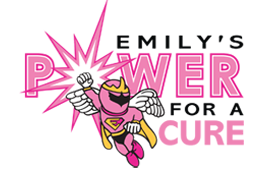WHAT IS NEUROBLASTOMA
What is Neuroblastoma
Neuroblastoma is a type of childhood cancer that develops in immature nerve cells within the Sympathetic Nervous System . The Sympathetic Nervous System (SNS), is part of the Autonomic Nervous System (ANS) which controls bodily functions such as breathing and heart rate. The SNS is made up of nerve fibers that run parallel to the spinal cord, ganglia, and nerve like cells located in the adrenal glands.
Neuroblastoma begins to grow in the very early forms of nerve cells as they develop in the fetus. With 650 - 700 new cases in the United States each year, Neuroblastoma accounts for 6% of all types of childhood cancers.
Signs and Symptoms
The average age of diagnosis is between one and two years of age, while 90% of all cases are diagnosed by the age of five .
The most common symptoms include:
- Enlarged Belly
- Swelling in the legs or in the face, neck, and/or upper chest
- Lump or swelling in the abdomen or neck, usually without pain
- Bluish lumps or bumps in the skin
- Weight loss
- Not eating or complaining about feeling full
- Issues breathing or swallowing
- Bone pain
- Drooping eyelid and small-looking pupil in one eye
- Bulging eyes and/or bruising around eyes
- Issues with being unable to feel or move parts of the body
Treatment and Follow Up Care
Treatment for Neuroblastoma can be difficult for not only the patient but friends and family as well. The most common forms of treatment are chemotherapy, radiation, surgery, and immunotherapy but it is important to remember that treatment is on a case to case basis and should be discussed with a health care professional.
Children who have been declared "cancer free" may have a follow up schedule to follow. Parents or caregivers should plan and stick to this routine. Depending on the stage of Neuroblastoma the child was diagnosed with, these follow up appointments could include lab work, PET scans, CT scans, and / or MRIs. As time goes on without recurrence, the time between tests may increase.
Long Term Health Effects
Neuroblastoma can cause long term health effects. These may stem from the cancer itself or from the treatment required to fight the disease. Some effects may be immediate while others may not begin until years later.
The most common long term health effects are:
- Hearing loss
- Bone and / or musculature problems
- Thyroid problems
- Growth and development concerns
- Fertility problems
- Neurological concerns
- Secondary cancers
- Opsoclonus Myoclonus Syndrome (a very rare syndrome in which the body’s immune system begins to attack normal nerve tissue, causing learning disabilities, delayed muscle development, language delays, and behavioral problems)
- Problems with the eyes or with muscle twitches (common in children with tumors located in the neck or chest, may require further treatment with corticosteroids or IVIG)
*All information above taken from outside websites. It is important to remember that each case of Neuroblastoma is different from the next. Please speak with a healthcare professional regarding any concerns you may have.*

